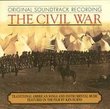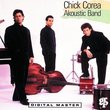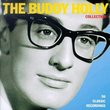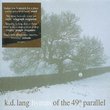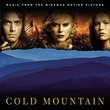| All Artists: Steve Reich Title: Reich: Different Trains, Electric Counterpoint / Kronos Quartet, Pat Metheny Members Wishing: 1 Total Copies: 0 Label: Nonesuch Release Date: 10/25/1990 Genres: Dance & Electronic, Jazz, Classical Styles: Techno, Chamber Music, Historical Periods, Modern, 20th, & 21st Century Number of Discs: 1 SwapaCD Credits: 1 UPCs: 075597917628, 075597917642, 075597917680, 007559791762 |
Search - Steve Reich :: Reich: Different Trains, Electric Counterpoint / Kronos Quartet, Pat Metheny
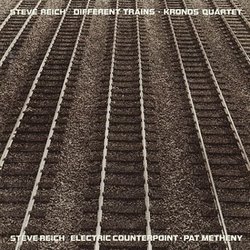 | Steve Reich Reich: Different Trains, Electric Counterpoint / Kronos Quartet, Pat Metheny Genres: Dance & Electronic, Jazz, Classical No Description Available. Genre: Classical Music Media Format: Compact Disk Rating: Release Date: 28-FEB-1989 |
Larger Image |
CD DetailsSynopsis
Product Description No Description Available. Genre: Classical Music Media Format: Compact Disk Rating: Release Date: 28-FEB-1989 Similarly Requested CDs
|
CD ReviewsAn extended exercise in pointlessness lexo1941 | Edinburgh, Scotland | 12/17/2008 (1 out of 5 stars) "Most of the reviewers of this product have been admirers of Steve Reich's work, and I imagine that most people who have read this far will also be fans of the guy, so I hope that nobody will offended if I offer a minority opinion. I am not an admirer of Steve Reich's work. I am not a fan of minimalist music in general, although I have enjoyed some recordings of earlier Philip Glass (such as the original version of "Einstein on the Beach") for their sheer energy. When it comes to twentieth-century composers, I listen to the stuff that people like Reich and Glass were originally in reaction to: Schoenberg, Webern, Boulez. If we're talking about American composers, give me Nancarrow, Zappa and even Cage. I have listened to this CD on various occasions, invariably in other people's houses, and I am frankly baffled why anyone could want to listen to something that makes your playback equipment sound faulty. The lack of variety, the slow rate of change, the things that people who like Reich's music prize in his work, seem to me to be obvious flaws. I am, simply, at a loss to understand not only why anyone would want to write music like this in the first place but also why anyone else would want to listen to it. In "Different Trains", the ways in which the strings replicate the tones of the sampled voices seems to me a gimmick. It's cute for about a minute but it then becomes quickly boring, and after that maddeningly annoying. This is of course because I am averse to minimalism generally. Rock music (which I like) can of course be minimalist, but decent rock music has an excitement and energy that I don't find in Reich's music. The only emotion that Reich's music inspires in me is a strong wish to turn it off. Frank Zappa summed it up for me in his one-word dismissal of minimalist music in general: "monochromonotony". So, if you like listening to the aural equivalent of a Carl Andre arrangement of bricks, good luck to you. Happy listening. I do not want to spoil your enjoyment of this music, but I regret the overwhelming dominance of minimalism as the form of serious music most sponsored by major record companies from the late 70s to relatively recently. It's easy to see why Reich and Glass could be made into superstars; their music is mostly bland, banal and inoffensive and does not - unlike the work of Webern, Nancarrow or Zappa - demand active listening. You can put it on in the background and ignore it. In the meantime, far more inventive and involving music was being written, and major record companies wouldn't go near it. But that's CBS's and Nonesuch's fault more than it is Reich's. I still can't stand his records, though." Essential Steve Reich Philip Spires | La Nucia, Spain | 12/12/2007 (5 out of 5 stars) "The two works on this disc are essential listening for anyone with even the slightest interest in Steve Reich. For those who don't know the composer, there are perhaps easier places to start - the Music for Mallet Instruments, Octet, Music for 18 Musicians, for instance.
It's now nearly 20 years since these pieces were recorded. Different Trains juxtaposes the Kronos Quartet with taped railway announcements, words overheard on trains, lines relating to train journeys etc. Throughout, there's a true integration of the form, since the strings pick up rhythmic and melodic lines from the spoken words, develop them, amplify them. Electric Counterpoint is performed on an electric guitar. Pat Metheney plays against pre-recorded tapes to create something like a complex - but surprisingly easy on the ear - fugue (well, canon). I have one criticism of the disc in that I have always found the recording quality of Different Trains just too much "in the face". It's too close for my liking, but the problem isn't great enough to detract from the playing or the piece. " |


